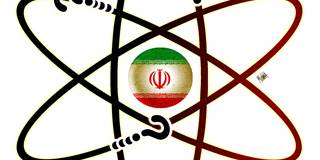Iran’s Nuclear Quandary
There are many obstacles to a nuclear agreement with Iran, but among the least examined is the legacy of nuclear-disarmament efforts involving Libya and North Korea. Both cases raise issues that neither Iran nor the US wants to see repeated – but that both will have difficulty avoiding.
LOS ANGELES – When the United States and its allies resume talks over Iran’s nuclear program on November 7-8, the vexing task of crafting Iran’s recent proposal into an enduring agreement will begin in earnest. There are many obstacles to an agreement, but among the least examined is the legacy of nuclear-disarmament efforts involving Libya and North Korea. Both cases raise issues that neither Iran nor the US wants to see repeated – but that both will have difficulty avoiding.
For the US, North Korea illustrates how a poor but ambitious country developed the bomb by gaming talks and gaining time. For Iran, Muammar el-Qaddafi’s 2003 relinquishment of Libya’s weapons of mass destruction demonstrates how a regime, still considered a bête noire by the international community even after normalization of diplomatic relations, arguably forfeited its survival in 2011 by forgoing the chance to build a nuclear deterrent. Digging further into each case illuminates the challenges faced by Iran and its international interlocutors.
What makes the North Korea precedent particularly troubling is how much Iran has mimicked the regime in Pyongyang. This naturally prompts questions about whether Iran is using the current round of negotiations as a façade for an ongoing effort to develop nuclear weapons.



LOS ANGELES – When the United States and its allies resume talks over Iran’s nuclear program on November 7-8, the vexing task of crafting Iran’s recent proposal into an enduring agreement will begin in earnest. There are many obstacles to an agreement, but among the least examined is the legacy of nuclear-disarmament efforts involving Libya and North Korea. Both cases raise issues that neither Iran nor the US wants to see repeated – but that both will have difficulty avoiding.
For the US, North Korea illustrates how a poor but ambitious country developed the bomb by gaming talks and gaining time. For Iran, Muammar el-Qaddafi’s 2003 relinquishment of Libya’s weapons of mass destruction demonstrates how a regime, still considered a bête noire by the international community even after normalization of diplomatic relations, arguably forfeited its survival in 2011 by forgoing the chance to build a nuclear deterrent. Digging further into each case illuminates the challenges faced by Iran and its international interlocutors.
What makes the North Korea precedent particularly troubling is how much Iran has mimicked the regime in Pyongyang. This naturally prompts questions about whether Iran is using the current round of negotiations as a façade for an ongoing effort to develop nuclear weapons.